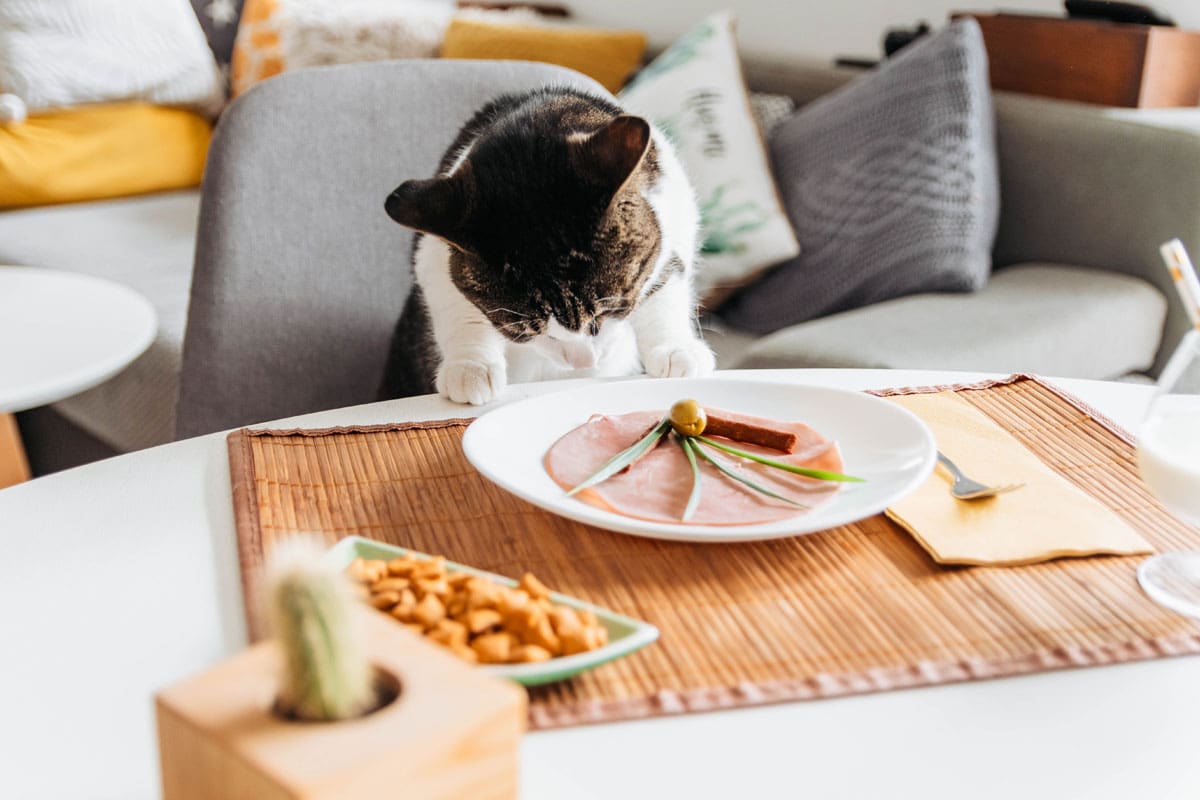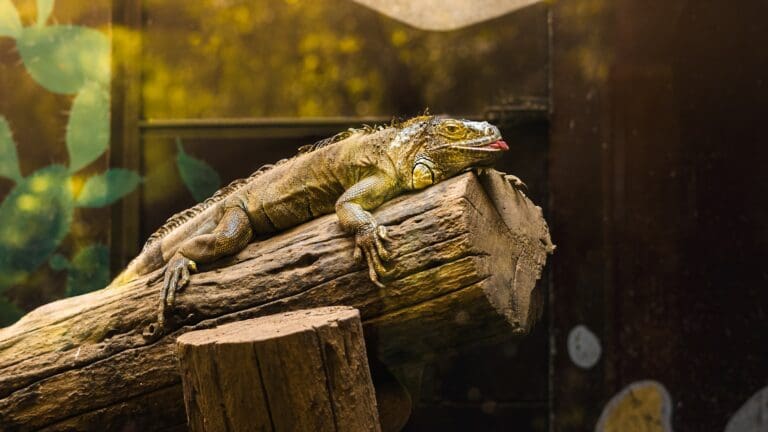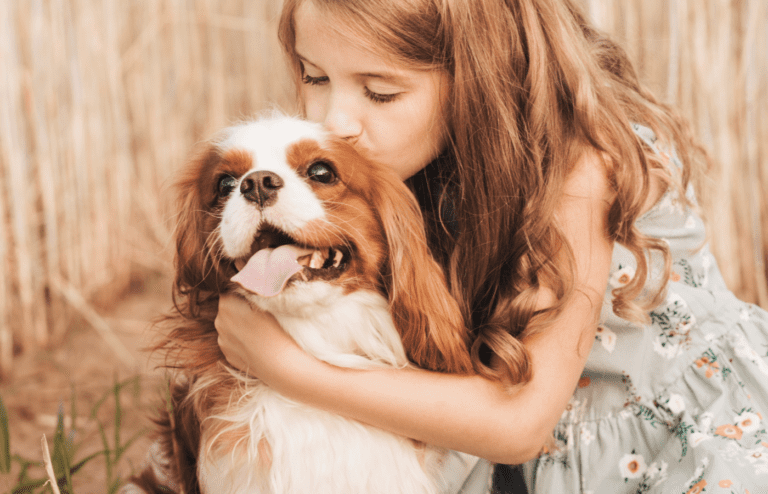Cats are beloved members of many households, and responsible pet owners are always looking out for their feline friends’ well-being. One essential aspect of cat care is understanding what foods are safe and what should never be offered to them.
Cats have distinct dietary preferences, and some foods that humans commonly consume can be toxic to them. Here is a list of 14 common foods your cat should never eat to ensure their health and safety.
1. Dairy Products
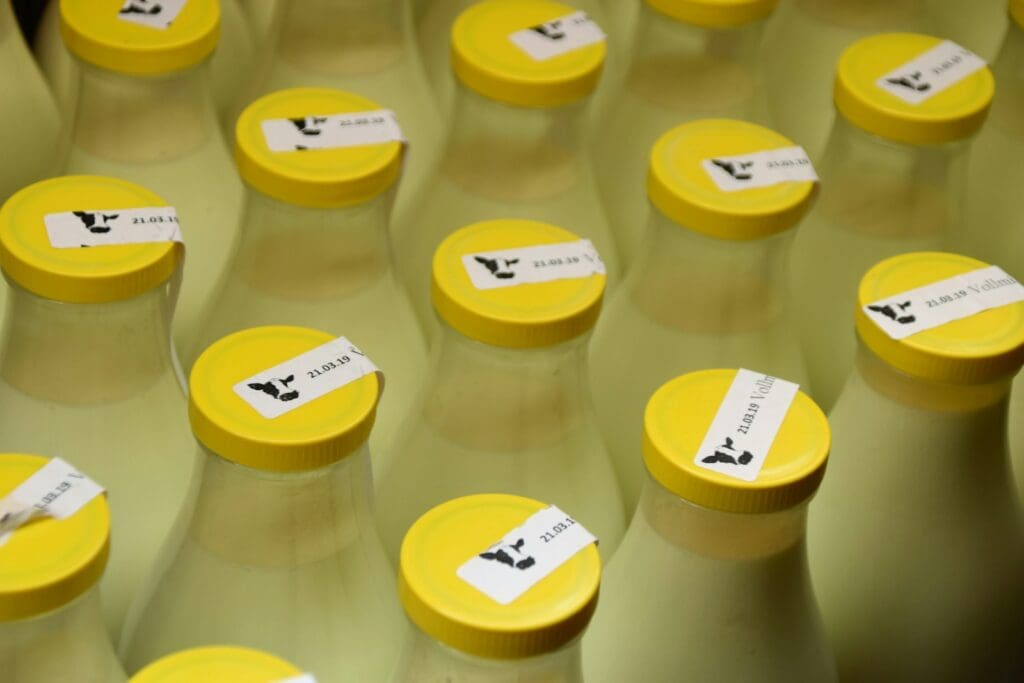
Even though the idea of cats enjoying milk seems pretty natural, many cats are lactose intolerant. Consuming dairy products can lead to digestive upset, including diarrhea and vomiting.
Also, milk is not a substitute for water. Cats are prone to dehydration and need lots of fresh water daily.
2. Raw or Undercooked Meats, Fish, and Eggs
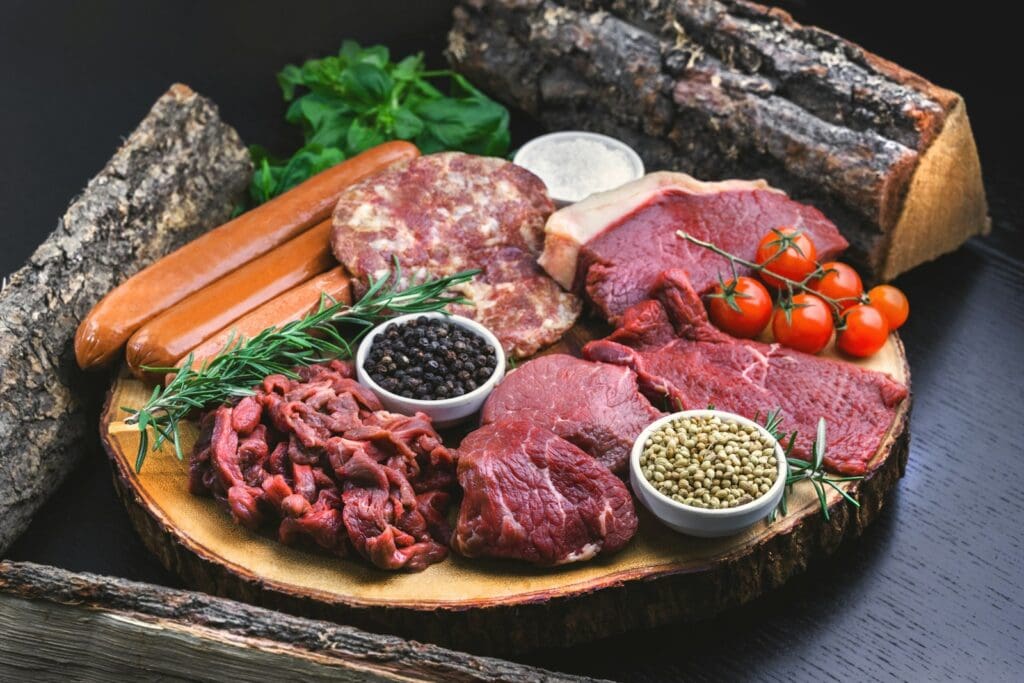
The problem with feeding your cat raw meat, raw fish, or raw eggs, is the same that humans face. There is a possibility that these foods could contain bacteria such as E. coli or Salmonella.
Further, raw fish contains an enzyme that destroys thiamine, which can cause neurological problems in cats and potentially a coma. Raw eggs contain an enzyme that decreases the absorption of biotin, which can lead to coat and skin problems.
3. Liver
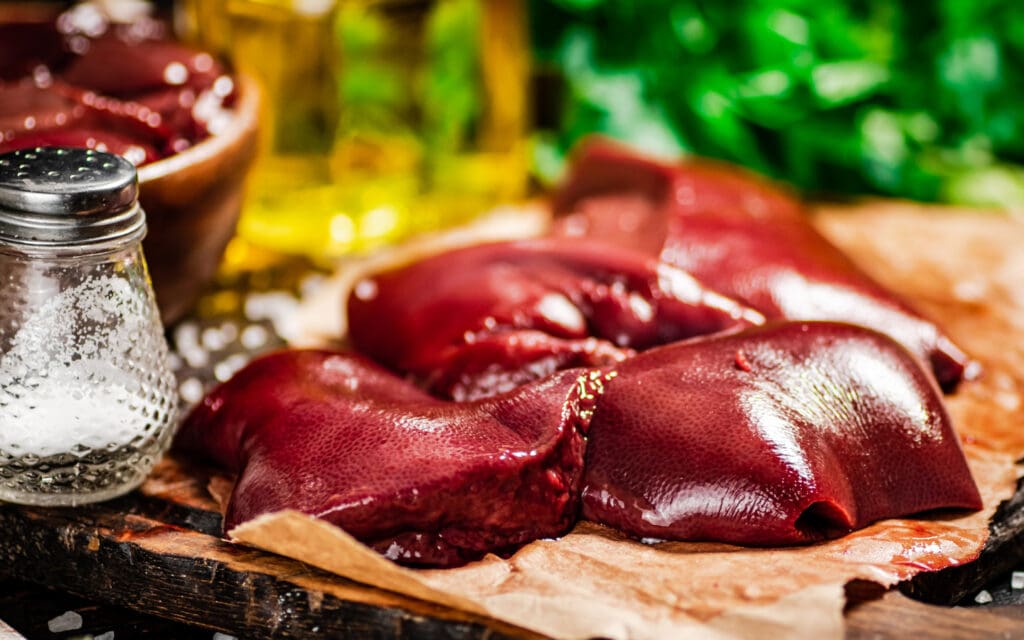
Use caution when feeding your cat food products or treats that contain liver. Liver contains high amounts of vitamin A which can cause a condition known as vitamin A toxicity. This can lead to death in severe cases.
Vitamin A toxicity can cause several bone-related conditions including deformed bones, bone growth on the spine and elbows, and osteoporosis.
4. Onions, Garlic, or Chives

Onions, garlic, and chives — whether raw, cooked, or in powdered form — contain compounds that can damage a cat’s red blood cells. This could potentially lead to anemia.
Symptoms include weakness, lethargy, and, in severe cases, organ failure. Be cautious about feeding your cat any food with even small amounts of these ingredients.
5. Grapes and Raisins
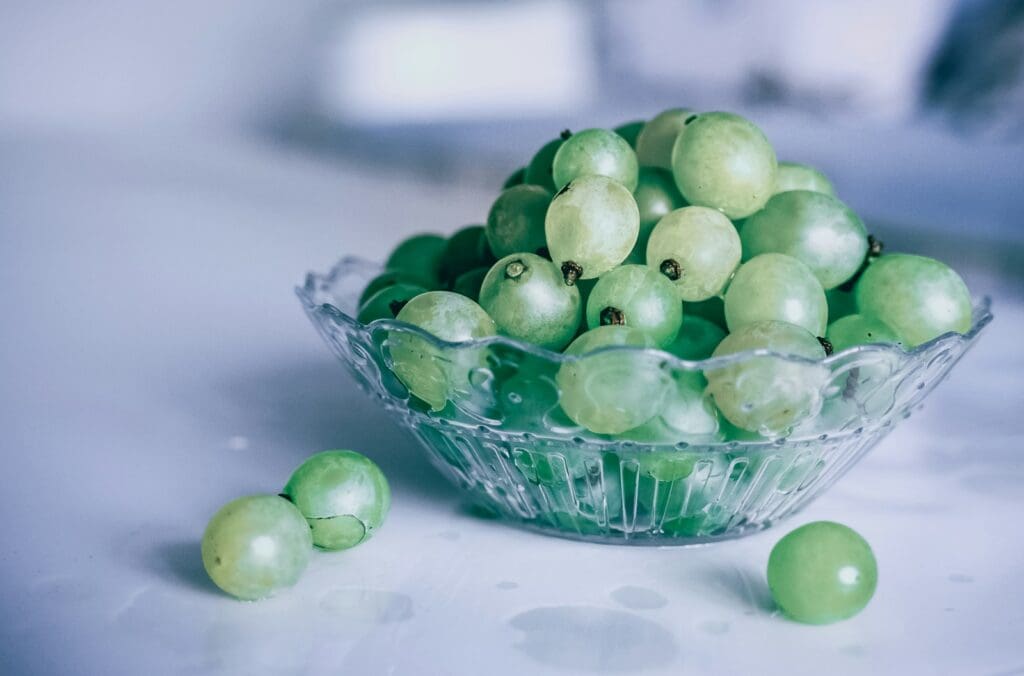
Grapes and raisins can cause kidney failure in cats. The exact toxic substance in these fruits is still unknown, so it’s best to avoid giving them to your cat entirely.
6. Canned Tuna
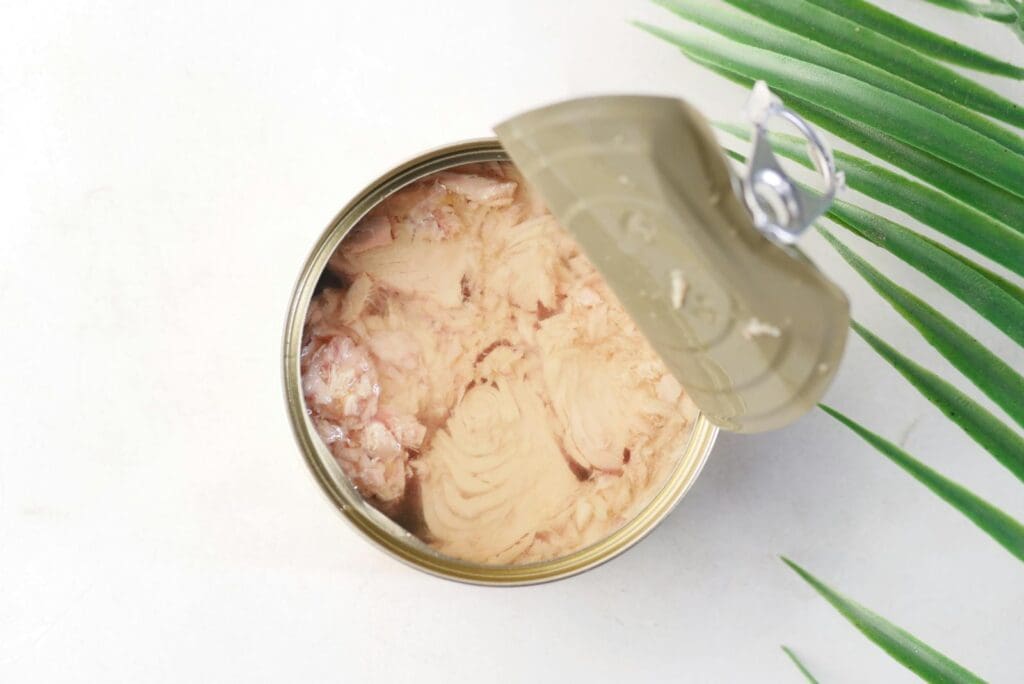
Believe it or not, feeding your cat only canned tuna can lead to malnutrition because it doesn’t contain all the necessary nutrients a feline needs.
In addition, too much canned tuna can lead to mercury poisoning. Instead, choose tuna-flavored pet food, as these are required to provide all necessary minerals and vitamins cats need.
7. Bones
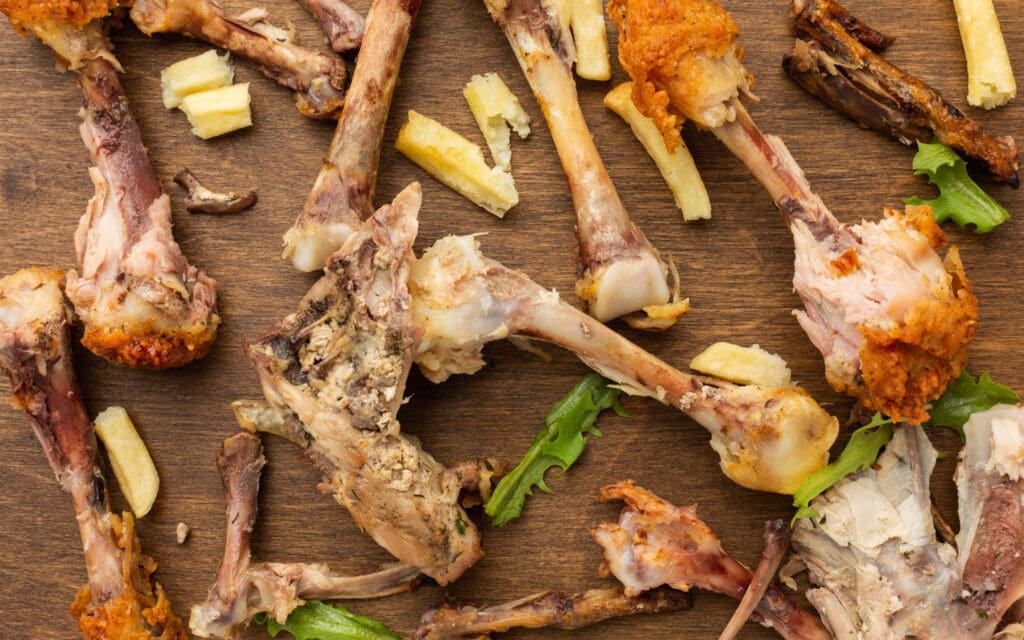
Cooked bones, especially poultry bones, can splinter and pose a choking hazard or cause severe internal injuries if ingested.
While raw bones are less likely to splinter, it’s still best to avoid giving them to your cat.
8. High-Fat Foods
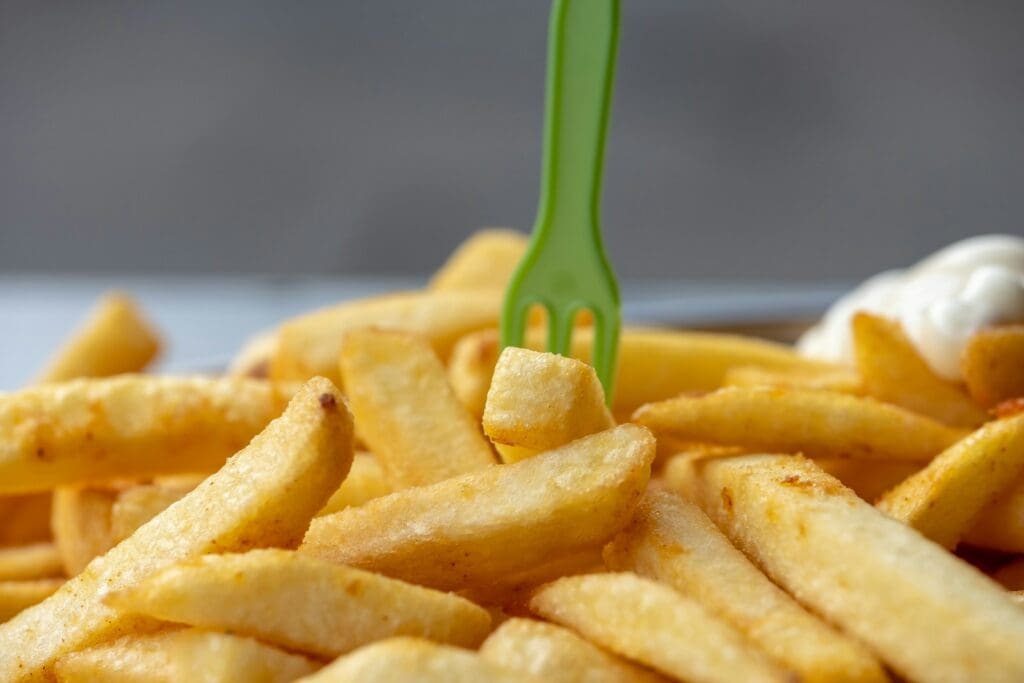
Foods high in fat, such as fatty meat trimmings or fried foods, can lead to pancreatitis in cats.
This painful and potentially life-threatening condition should be avoided.
9. Chocolate
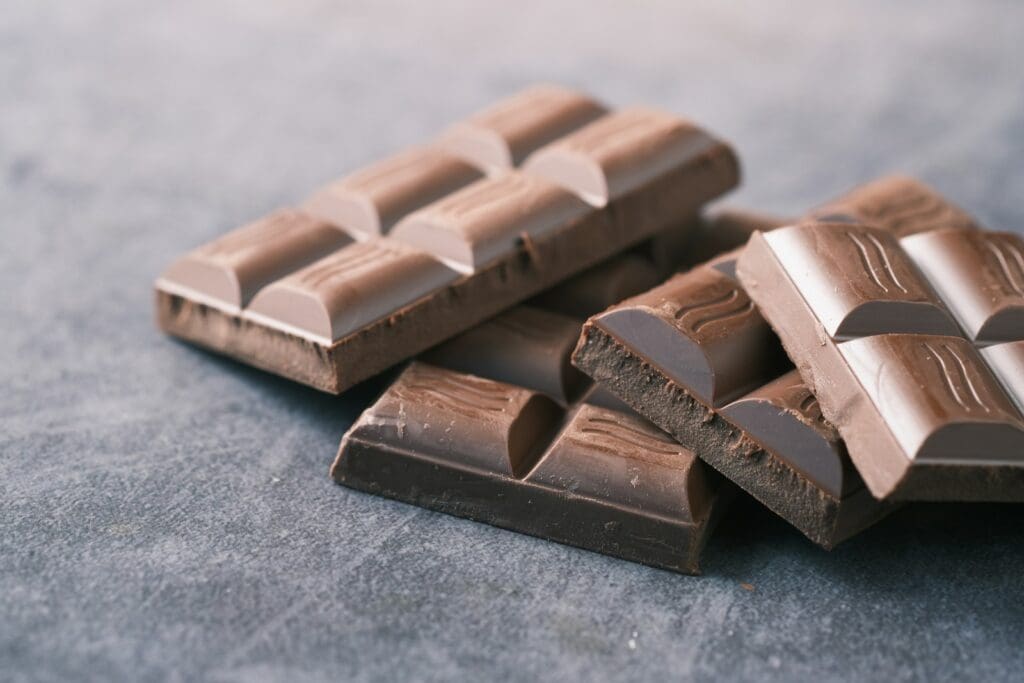
Chocolate contains theobromine, a substance that is toxic to cats. Even small amounts can lead to symptoms like vomiting, diarrhea, and increased heart rate. In severe cases, it could lead to seizures and death.
Keep all chocolate products away from your cat’s reach.
10. Bread or Other Dough Containing Yeast
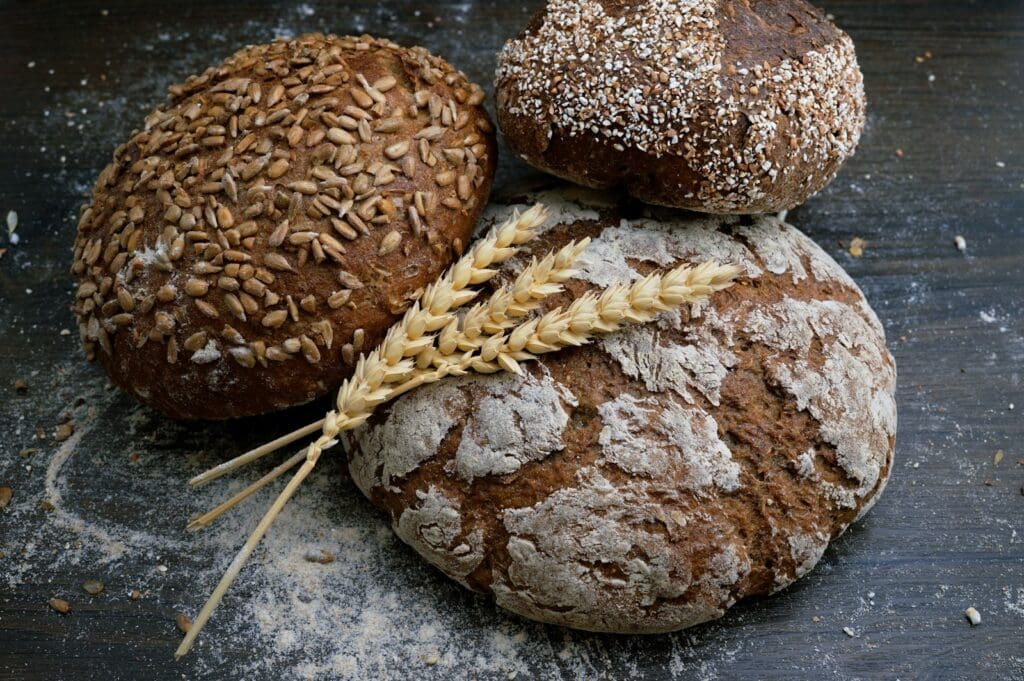
Raw bread dough can expand in your cat’s stomach, causing discomfort and potentially leading to bloating or intestinal blockage.
The yeast in the dough can also produce alcohol, which is toxic to cats.
11. Green Potatoes, Raw Potatoes, or Tomatoes

Feeding your cat uncooked potatoes or raw tomatoes can lead to gastrointestinal distress.
However, green potatoes — whether they are raw or uncooked — can cause cardiac issues, hallucinations, or paralysis.
12. Caffeine

Caffeine is another stimulant that should be kept away from your cat. It can be found in coffee, tea, energy drinks, and some medications.
Ingesting caffeine can lead to rapid breathing, heart palpitations, tremors, and, in extreme cases, can be fatal.
13. Xylitol
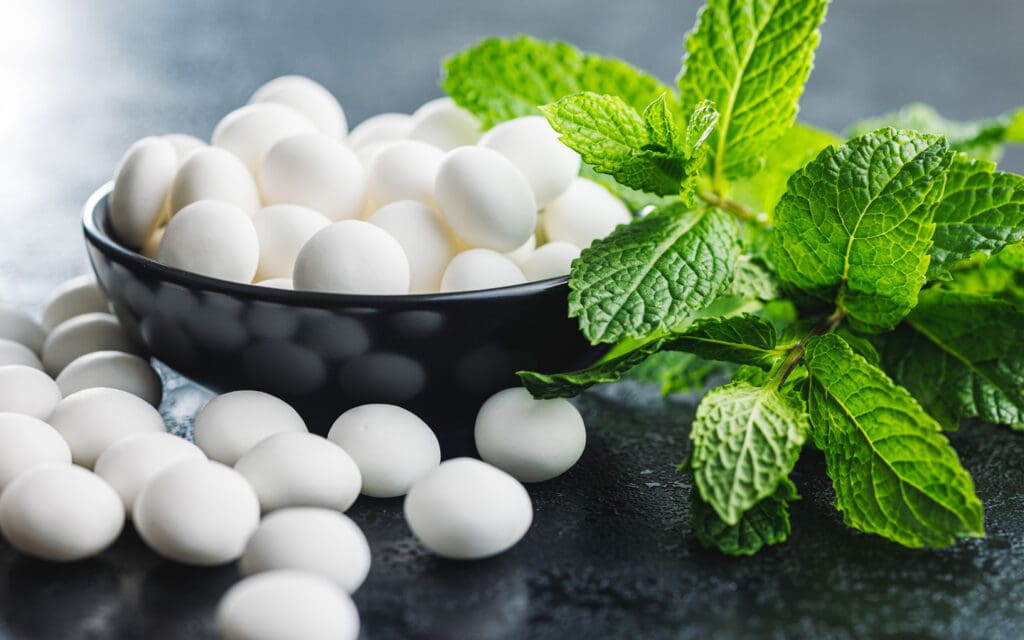
Xylitol is a sugar substitute often found in sugar-free gum, candies, and some baked goods.
Ingesting xylitol can lead to insulin release in cats, causing a rapid drop in blood sugar levels, which can result in seizures or even death.
14. Alcohol

It should be common sense not to do this, but there are always those individuals out there who might think it would be funny to get a cat drunk. It’s not. Just don’t. Ensure that your cat does not have access to alcoholic beverages or foods containing alcohol.
Alcohol, even in small amounts, is dangerous for cats. It can cause alcohol poisoning, leading to symptoms such as depression, vomiting, seizures, and, in severe cases, it can be life-threatening

